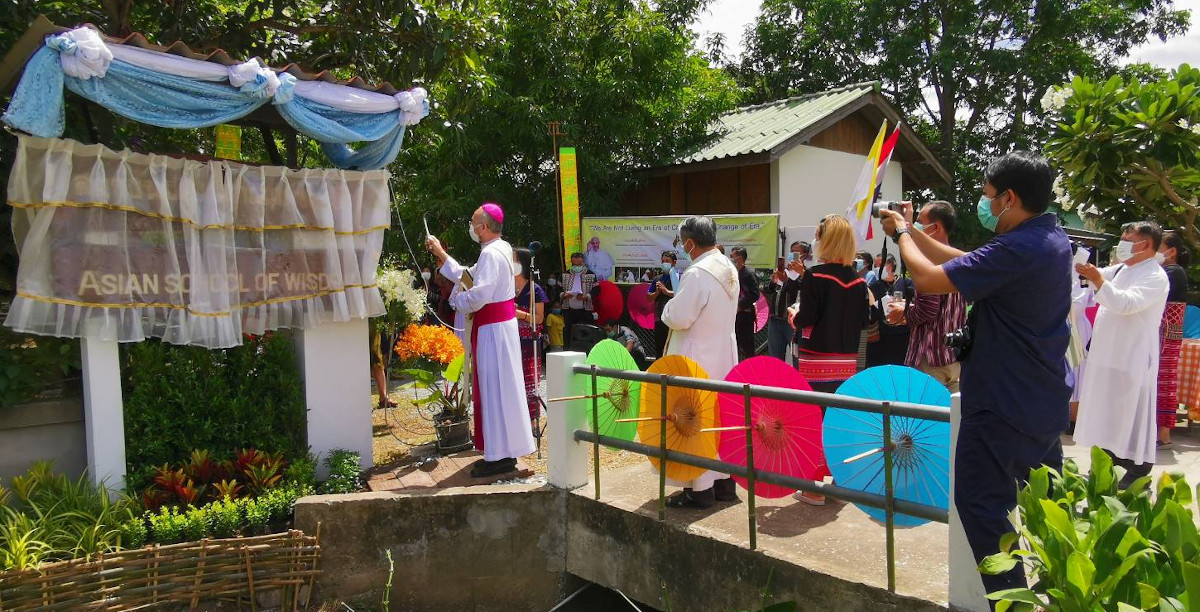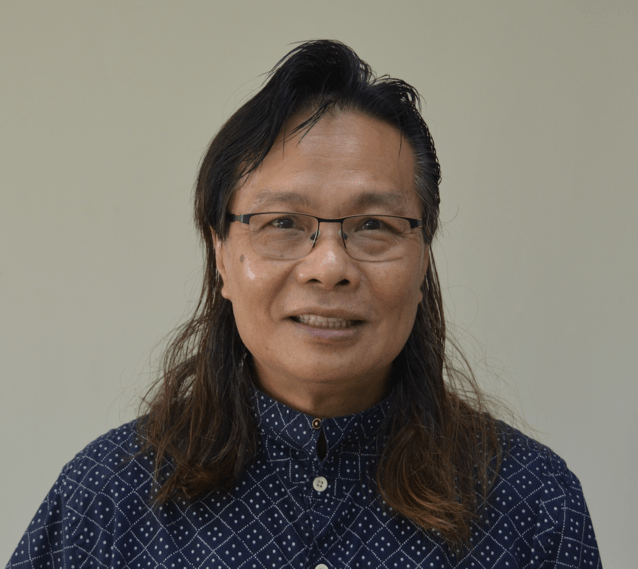
The online launch was witnessed by 87 organisations from 12 countries, including the Jesuits in Thailand. Fr Miguel Garaizabal SJ, Superior of the Thai Jesuit Region, expressed support for ASW, as well as Fr Sugiyo Pitoyo who spoke of how the Xavier Immersion Program intends to collaborate with ASW in providing formation programmes based on Laudato si’, Fratelli Tutti, and Querida Amazonia for seminarians from the various dioceses of Thailand. Fr Vinai Boonlue SJ likewise conveyed a collaboration between ASW and Xavier Learning Community in offering a three-day orientation programme.
ASW puts in the foreground our invaluable ancestral gems in a time when we are witnessing a change of era (Pope Francis 2016), from anthropocene to sapientialocene (age of wisdom). Through the sounding of the gong, ASW issued a clarion call to all global sojourners in their earnest quest for a more meaningful life as imago Dei and imago mundo in this postcolonial-pandemic world. Savour anew in Christ these sacred springs of bounteous divine wisdom for the sustainability of human-otherkinds in our inclusive future, in our common home plagued by increasing global challenges threatening all forms of life.
ASW aims to promote these springs of wisdom through a process of intersubjective co-learning (Rean Rue Roum’ Kan in Thai) of the immemorial sacred folklores and myths of our farming and indigenous communities (Gan Chaiy Reung Lauw Tik Sauk Sit Khong Chaw Ban in Thai) that Querida Amazonia (QA) unequivocally affirmed as ancestral wisdom in #78 and embedded in indigenous mysticism (QA#73).
As the ancestral and mystical wisdom is “charged with spiritual meaning” (QA 79; cf 78), the coeval (J. Fabian 1983) moments of co-learning unleash sacred power from within the folklores and myths when indigenous farming communities and intervening agencies together confront the communal crises of drug addiction, the tyrannical bondage of moneylenders, land encroachment, poverty, prostitution, and water shortage. Such ancestral wisdom has been harnessed for centuries for plural eco-sensitive practices that respond to the cries of the afflicted and our common home (LS # 49). The communal responses thus foster and nurture buen vivir or “good living” between humankind and otherkinds (QA 8, 26, 71) that makes life in the ancestral homeland sustainable.
As a multiversity hub located in Chiang Mai, Thailand, ASW is guided by the vision of “shaping youthful and learning communities that live in authentic dialogue-based partnership and active harmony with themselves, with the marginal farming and indigenous communities, with Mother Earth, and all of Creation.”
As a hub of co-learning, ASW proposes to offer courses in the post-pandemic future on:
- Ancestral Wisdom of Sacred Sustainability
- Shamanic Spirituality for Sustainable Livelihoods
- Laudato Si and Critical Earth Sociology
- Localizing, Re-Imagining, and Going Beyond the Sustainable Development Goals (SDGs)
- Social Response to Covid-19, the Pandemic, and Public Health
- Critical Issues in De-colonizing Development
- Childhoods, Child Rights, and Globalization
- Femininity, Indigeneity, and the Voice of the Future
- Conscience and Compassion Studies
The first of its co-learning events will be on 21 August, featuring Fr Niphot Thievihan, founder, pioneer, and visioner of ASW, who will speak on Religiocultural Methodology and Cultural Agriculture.
Ultimately, ASW hopes to facilitate an irruption of wisdom, the sacred, and the spirit from within the interstitial spaces of the global secular world and our indigeneity. In short, ASW hopes to offer the world another ray of hope and resilience.







